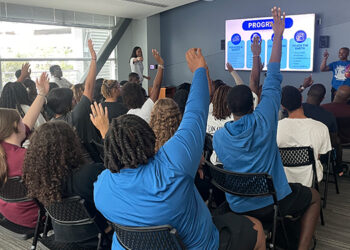When developing programs and services for your student body, it is important to not only keep them in mind, but gather their feedback, and maybe even include them in the decision making process.
NC State developed the University Recreation (UREC) Advisory Board in order to involve user groups in the planning, organization and administration of recreation programs and facility operations.
“I think it is a great opportunity to have a formal process where some of our key stakeholders and constituents — primarily students — can really have a place at the table,” said Eric Hawkes, the director of University Recreation at NC State. “They can hear about all of the things that are going on within the organization from planning to strategic thinking. It is a great forum and opportunity to have communication directly between our staff and our users.”
Members of the UREC Advisory Board Include:
- Three At-Large Student Representatives
- Three Inter-Residence Council Representatives
- Student Senate Representative
- University Graduate Student Association Representative
- Multicultural Greek Council Representative
- Interfraternity Council Representative
- National Pan-Hellenic Representative
- Panhellenic Association Representative
- University Recreation Student Employee Representative
- Three Faculty & Staff Representatives
- Director of University Recreation
According to Hawkes, the Advisory Board is viewed like another member of the staff. “We regularly talk about the value and impact that UREC has,” said Hawkes. “When there are challenges or issues we are dealing with, we often share that with them, and try to get some direction and thoughts on major decisions. This gives another lens and input from our student users before we go down a certain path. It is great to get another point of view and perspective to help us do what we do effectively.”
Seeking student feedback and collaboration will only increase your ability to fulfill your mission as a department. “I think having these boards is really helpful for the organization to be successful,” he added. “Ask for feedback on a regular basis. Communicate what you do in an effective way. Having that open process allows student stakeholders to peek into the day-to-day operations of what is going on in the organization. That allows you to provide a great product to all of your campus community.”










